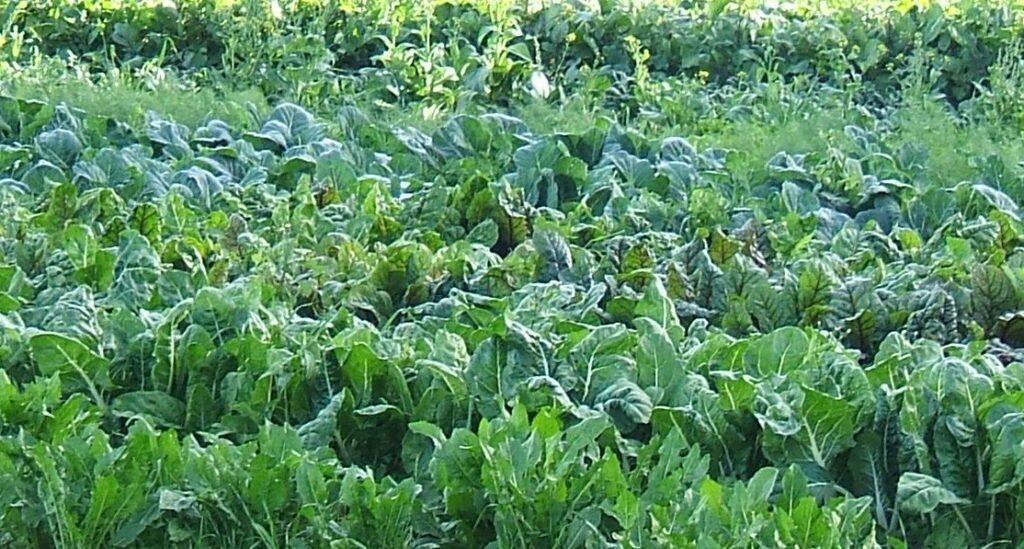Dr. Shri Krishna Jugnu stands as a beacon of scholarly excellence. His illustrious career spans a breadth of disciplines within the vast expanse of Sanskrit literature and sustainable agriculture. With an impressive oeuvre comprising around 175 meticulously crafted books, Dr. Jugnu’s contributions traverse the realms of Agriculture, Art, Architecture, Astrology, Ayurveda, Dance & Music, Horticulture, Mass Media, Religion, Sculpture, and Vaastu, each a testament to his erudition and dedication.
His deep-seated understanding of Sanskrit serves as a gateway to unraveling the profound wisdom enshrined in ancient Indian texts. He offers invaluable insights into the intersection of science and tradition. The accolades bestowed upon him by esteemed institutions and governmental bodies, including the President of India and Rashtriya Sanskrit Sansthan, underscore the magnitude of his impact and the recognition of his scholarly prowess.
In a captivating exchange with The Interview World, Dr. Shri Krishna Jugnu illuminates the enduring relevance of ancient agricultural practices. He highlights their nuanced sophistication and efficacy when compared to modern methodologies. Through his elucidation, he underscores the imperative of embracing traditional wisdom in addressing contemporary challenges. Moreover, he bridges the gap between the past and the present to forge a path toward sustainable agricultural practices.
Q: How did ancient India demonstrate advanced technological proficiency in agriculture?
A: Ancient India’s economic progress thrived on farming, which stood as the cornerstone of its prosperity. The primary occupation of the populace revolved around agriculture, shaping the trajectory of Indian civilization. Settlements predominantly emerged along riverbanks, underscoring the significance of agriculture in societal development.
The ancient text Sasya Veda delves into various facets of farming, encompassing land management, rainwater harvesting, seed processing, water management, as well as methods for natural insecticides and pesticides. Remarkably, agricultural productivity surpassed that of contemporary practices.
Extensive research into Sanskrit agricultural literature, including works like Kashpiya Krishi Padhati, Sushpal Wrikshya Ayurveda, Someshwar ka Wrikshya Krida Gyanam, Prashar’s Gulm Wrikshya Ayurveda, Vrihstpti Krishi Shatra, and Krishi Kamden, has provided profound insights. It unequivocally demonstrates that ancient agricultural technologies and processes enabled farmers to carry out sustainable farming practices meticulously.
Q: What are the environmental, social, and health implications associated with modern agricultural practices?
A: Modern farming prioritizes maximizing yields, often at the expense of long-term sustainability. This shortsighted focus neglects the adverse effects on land nutrition, leading to soil degradation and reduced crop diversity. Moreover, the heavy reliance on high-yield crops exacerbates water scarcity issues due to their increased water demands. The widespread use of pesticides, insecticides, and herbicides further compounds the problem by disrupting the delicate balance of eco-friendly microorganisms in the soil.
Additionally, the presence of these chemicals in edible crops poses serious health risks to both humans and animals. Prolonged exposure to these harmful substances aggregate various health problems, including the development of cancerous cells in humans. Thus, a shift towards more environmentally friendly and sustainable farming practices is crucial to mitigate these detrimental impacts on ecosystems and public health.
Q: How can we sustainably feed the world’s growing population using traditional or organic farming methods?
A: Organic farming emerges as a promising avenue to sustainably nourish the world’s population. In Keshavpuri, Maharashtra, farmers are adopting age-old agricultural practices advocated by Krishi Saint Valmiki Sriniwasn Ayaingar. Through this approach, they not only attain impressive yields but also restore the vitality of the soil. Furthermore, the Agro History Foundation in Secunderabad is actively engaged in ongoing research to delve deeper into the potential of organic farming. Their investigations seek to unveil innovative strategies that can effectively address the complex challenges facing modern agriculture, paving the way for a more resilient and environmentally conscious food production system.
Q: How can agriculture be leveraged to effectively address the challenges of unemployment?
A: Undoubtedly, agriculture offers a plethora of opportunities spanning from unskilled to skilled professionals across its diverse value chain. Presently, there’s a notable societal shift as individuals rapidly transition from the primary economic sector, which encompasses agriculture and its related domains, towards the secondary and tertiary sectors.
An intriguing insight surfaces when reflecting on the tumultuous year of 2020: amidst the widespread upheaval caused by the pandemic across various sectors, agriculture emerged as the sole positive contributor to the Gross Value Added (GVA) in the Indian economy. This underscores the critical role agriculture plays in not only driving economic growth but also in fostering robust employment opportunities, thereby serving as a cornerstone for sustainable development and societal well-being.




Usually I do not read post on blogs, but I wish to say that this write-up very forced me to take a look at and do so! Your writing style has been surprised me. Thank you, very great article.
I haven’t checked in here for a while since I thought it was getting boring, but the last several posts are great quality so I guess I’ll add you back to my everyday bloglist. You deserve it my friend 🙂
Well I truly liked reading it. This subject provided by you is very practical for good planning.